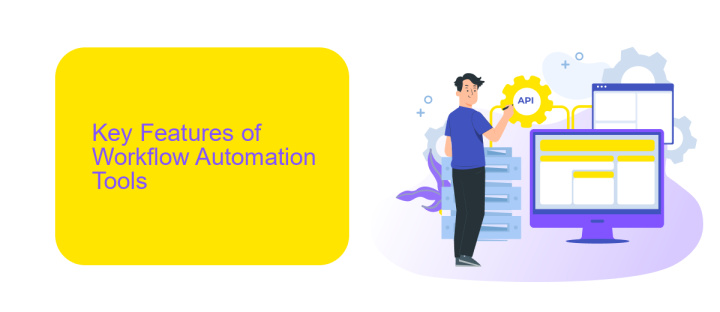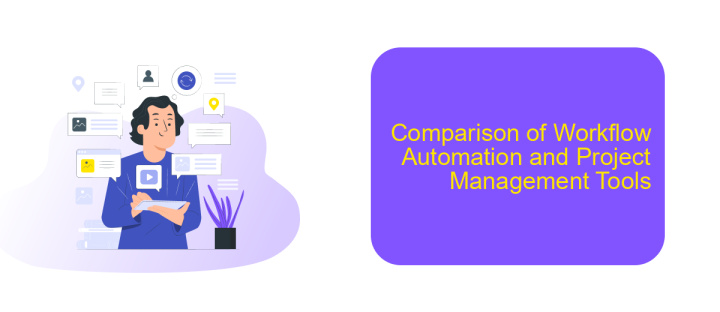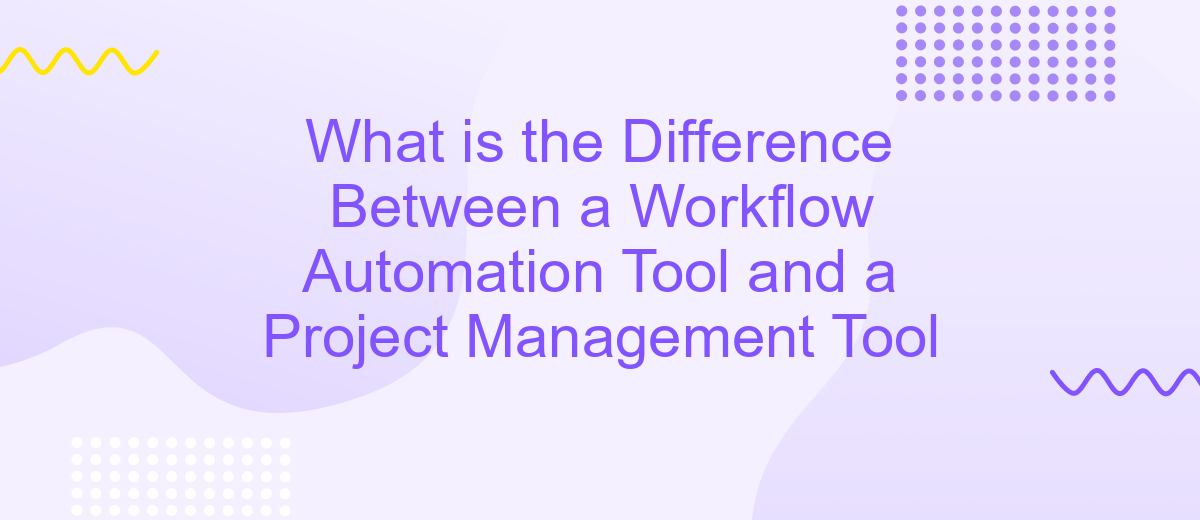What is the Difference Between a Workflow Automation Tool and a Project Management Tool
In today's fast-paced business environment, understanding the distinction between workflow automation tools and project management tools is crucial for optimizing productivity. While both types of software aim to streamline processes and improve efficiency, they serve different purposes and offer unique features. This article explores the key differences between these tools, helping you choose the right solution for your organizational needs.
Introduction: Distinguishing Workflow Automation and Project Management
Understanding the distinction between workflow automation tools and project management tools is crucial for optimizing business operations. Workflow automation tools are designed to streamline repetitive tasks, ensuring consistency and efficiency. These tools help automate processes such as data entry, email notifications, and task assignments, reducing the need for manual intervention.
- Automate repetitive tasks
- Ensure consistency and efficiency
- Reduce manual intervention
- Streamline processes like data entry and notifications
On the other hand, project management tools focus on planning, organizing, and managing resources to achieve specific goals. They provide features for task scheduling, team collaboration, and progress tracking. While both types of tools enhance productivity, their purposes and functionalities differ significantly. For example, ApiX-Drive can integrate various applications, enhancing both workflow automation and project management by ensuring seamless data flow between systems.
Key Features of Workflow Automation Tools

Workflow automation tools are designed to streamline and automate repetitive tasks, reducing the need for manual intervention. Key features include task automation, where routine processes are executed automatically based on predefined rules. These tools often come with visual workflow builders, allowing users to create and modify workflows through drag-and-drop interfaces. Additionally, they provide robust scheduling capabilities, enabling tasks to be triggered at specific times or intervals, ensuring timely execution.
Integration capabilities are another crucial feature, allowing seamless connectivity with various applications and services. Tools like ApiX-Drive facilitate these integrations, enabling data to flow effortlessly between different platforms. Real-time monitoring and reporting are also significant features, providing insights into workflow performance and helping identify bottlenecks. Furthermore, workflow automation tools often include collaboration features, such as notifications and task assignments, enhancing team coordination and productivity. Overall, these tools aim to optimize efficiency, reduce errors, and improve overall operational effectiveness.
Key Features of Project Management Tools

Project management tools are essential for organizing, planning, and executing projects efficiently. They offer a range of features designed to streamline workflows, enhance collaboration, and ensure that projects are completed on time and within budget.
- Task Management: These tools allow users to create, assign, and track tasks, ensuring that everyone knows what needs to be done and by when.
- Collaboration: Team members can communicate, share files, and collaborate in real-time, which helps in maintaining transparency and improving teamwork.
- Resource Allocation: Efficiently allocate resources by tracking availability and workload, ensuring that no team member is overburdened.
- Time Tracking: Monitor the time spent on tasks and projects to better understand productivity and identify areas for improvement.
- Integration Capabilities: Tools like ApiX-Drive facilitate seamless integration with various applications, enhancing the tool’s functionality and allowing for a more cohesive workflow.
These key features make project management tools indispensable for teams looking to improve efficiency, collaboration, and overall project success. By leveraging these tools, organizations can better manage their projects and achieve their goals more effectively.
Comparison of Workflow Automation and Project Management Tools

Workflow automation tools and project management tools serve distinct yet complementary purposes within an organization. Workflow automation tools streamline repetitive tasks, enabling teams to focus on higher-value activities. On the other hand, project management tools are designed to plan, execute, and monitor projects, ensuring that all tasks are completed on time and within scope.
While both types of tools aim to increase efficiency, their functionalities differ significantly. Workflow automation tools often include features like task automation, data integration, and process mapping. Project management tools, however, focus more on task assignment, progress tracking, and resource management.
- Workflow Automation Tools: Automate repetitive tasks, integrate various services, and improve process efficiency.
- Project Management Tools: Plan projects, assign tasks, track progress, and manage resources.
- Integration Services: Tools like ApiX-Drive can connect different platforms, enhancing both workflow automation and project management capabilities.
Understanding the differences between these tools can help organizations choose the right solutions for their needs. While workflow automation tools excel in automating routine tasks, project management tools are indispensable for overseeing complex projects. Utilizing integration services like ApiX-Drive can further enhance the utility of both tool types, creating a more cohesive and efficient work environment.
- Automate the work of an online store or landing
- Empower through integration
- Don't spend money on programmers and integrators
- Save time by automating routine tasks
Conclusion: Selecting the Right Tool for Your Needs
Choosing between a workflow automation tool and a project management tool depends on your specific needs and objectives. Workflow automation tools excel at streamlining repetitive tasks, ensuring consistency, and reducing manual errors. They are ideal for businesses looking to automate routine processes and enhance operational efficiency. On the other hand, project management tools are designed to plan, execute, and monitor projects, making them perfect for teams that need to collaborate, track progress, and meet deadlines.
When selecting the right tool, consider whether your priority is automating tasks or managing projects. For instance, if you need to integrate various apps and services to automate workflows seamlessly, a tool like ApiX-Drive can be invaluable. ApiX-Drive allows you to connect different applications effortlessly, ensuring data flows smoothly between them. Ultimately, the choice should align with your business goals, team size, and the complexity of tasks or projects you handle.
FAQ
What is the primary difference between a workflow automation tool and a project management tool?
Can a workflow automation tool replace a project management tool?
How do workflow automation tools integrate with other applications?
Do project management tools offer any automation features?
Which tool should I choose for a small business?
Apix-Drive will help optimize business processes, save you from a lot of routine tasks and unnecessary costs for automation, attracting additional specialists. Try setting up a free test connection with ApiX-Drive and see for yourself. Now you have to think about where to invest the freed time and money!


